#võro
Text

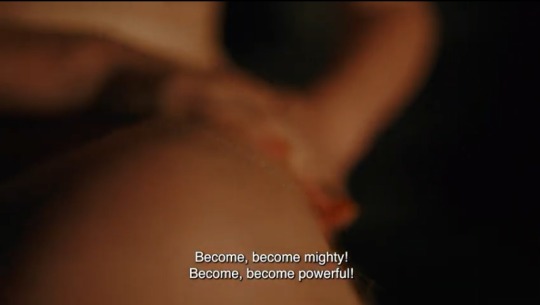


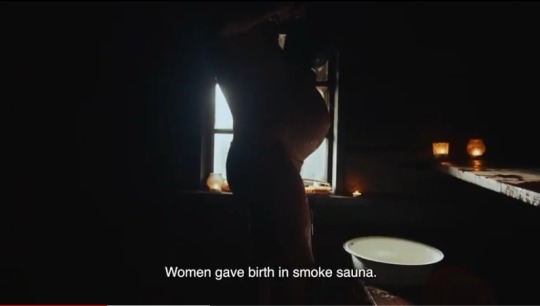
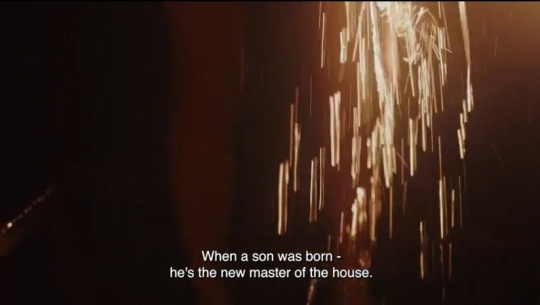

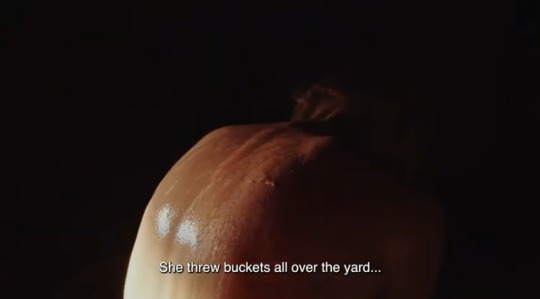

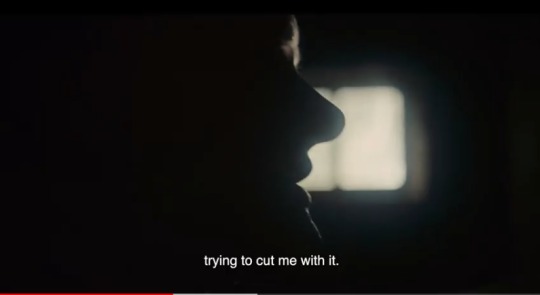
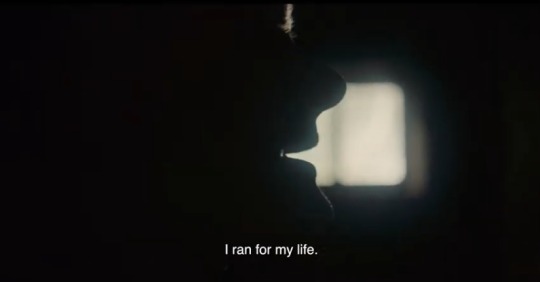
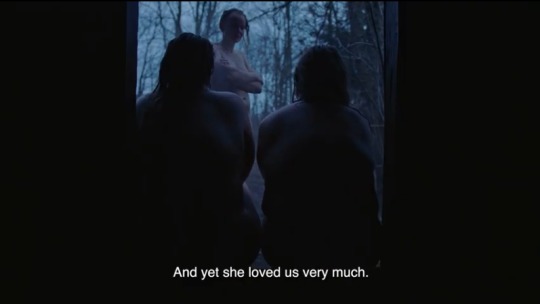
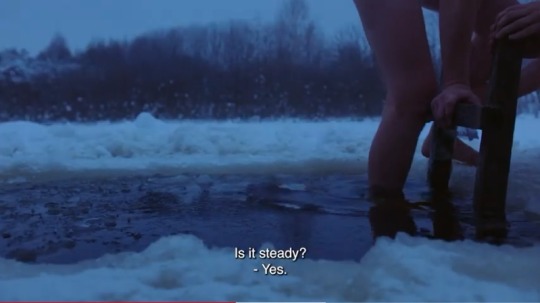
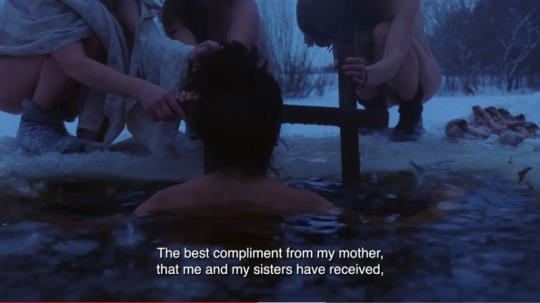
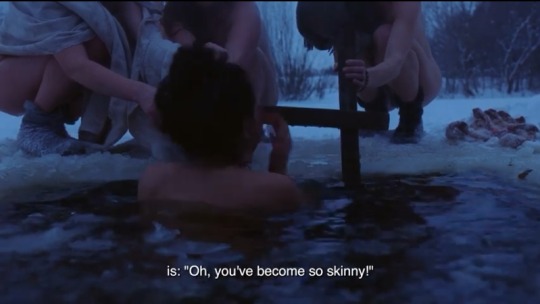
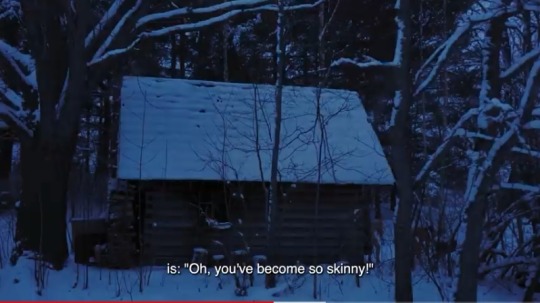
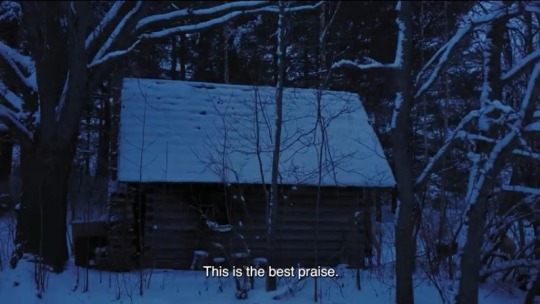
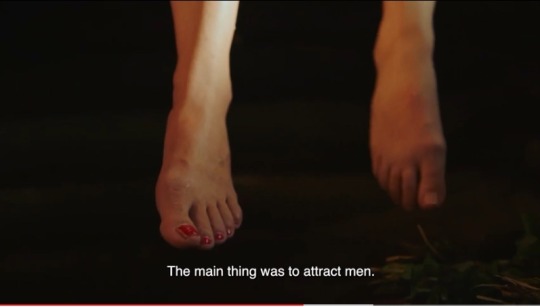
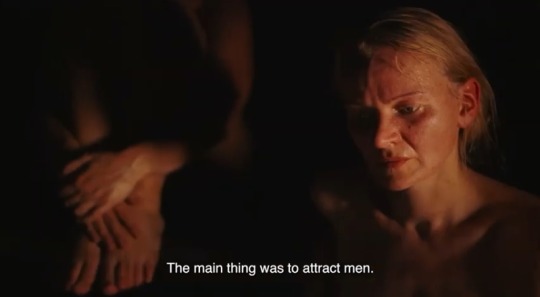
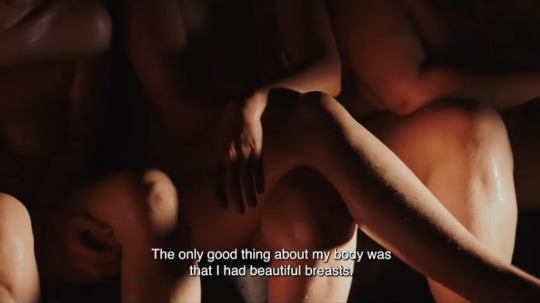
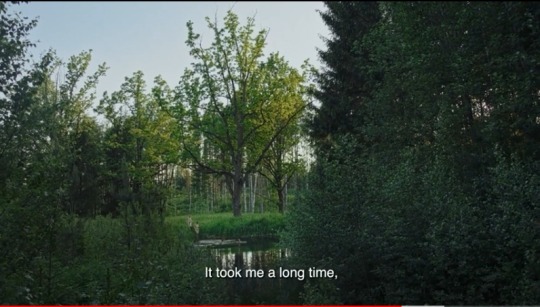
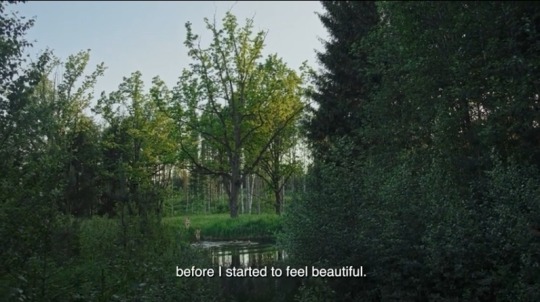
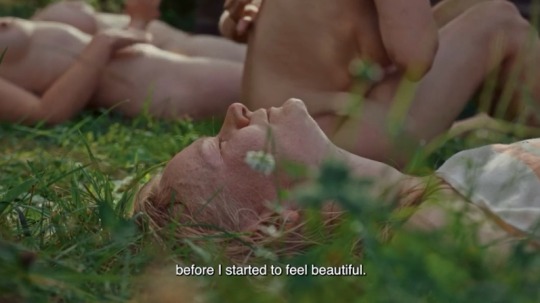
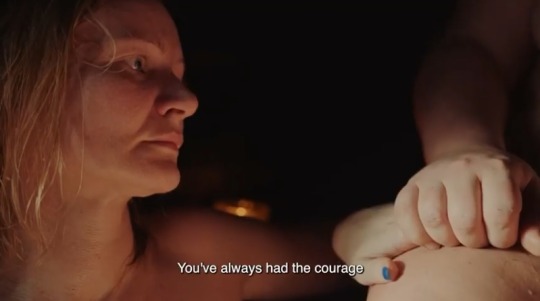
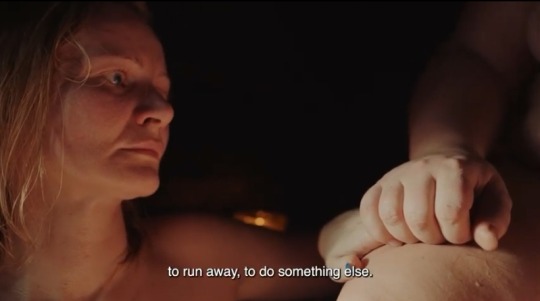
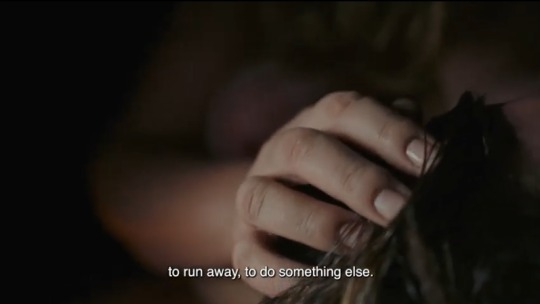

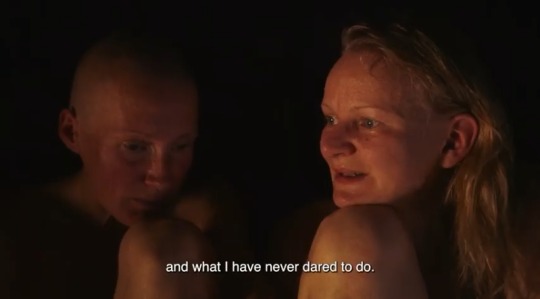
Smoke Sauna Sisterhood (2023) Directed by Anna Hints
#smoke sauna sisterhood#anna hints#estonia#eesti#seto#võro#vana võromaa#nocticola art#female directors#document#eesti keel#seto keel#võro keel
35 notes
·
View notes
Text

Õilme Võro 🇪🇪
#õilme võro#team estonia#female athletes#sitting#blonde#gorgeous#athletics#track girls#track and field
8 notes
·
View notes
Photo

Estonian 4x100m team 🇪🇪
Kreete Verlin, Õilme Võro, Ksenija Balta and Karoli Käärt
2019 European Team Championships (2nd League)
#kreete verlin#õilme võro#ksenija balta#karoli käärt#team estonia#relays#female athletes#athletics#track and field
4 notes
·
View notes
Text
SpongeBoy me Bob I have learned how to incorporate Võro kiil' into written English
You sure do know how to push my buqons. I can'q do this shiq anymore, I can'q fucking take iq, I am aq my fucking limiq argargarggrgargrgrargargh
1 note
·
View note
Text
some post-Eurovision 2023 stats for the Finno-Ugrics:
Of the 5 Finno-Ugric languages that have been present at Eurovision,
Finnish (Finland 2023) has achieved 2nd place with the 2nd largest televote result of all time, as well as 7th place 3 times (1962, 1964 & 1989) in the finals
Udmurt (Russia 2012) has achieved 2nd place in the finals
Hungarian (Hungary 1994) has reached 4th place in the finals
Northern Sami (Norway 2019) has reached 5th place in the finals
Estonian (Estonia 2012 & 2009) has reached 6th place twice in finals
Võro (Estonia 2004) has gotten 11th place in the semi-finals
402 notes
·
View notes
Text
Inspired by this
18 notes
·
View notes
Text

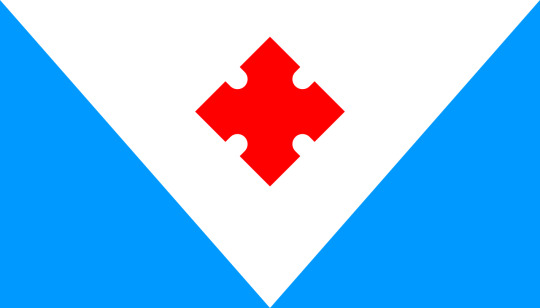


Flag Wars Bonus Round
21 notes
·
View notes
Text
Eurovision Fact #50:

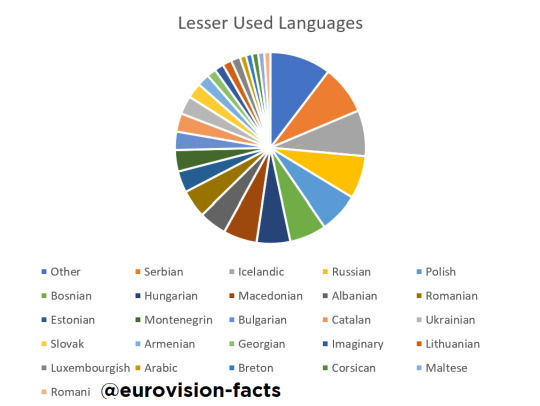
Over the contest’s 66 year history, a total of 61 different languages (62 if you count all of the songs sung in imaginary languages as another language) and dialects have been sung by contestants. This does not include songs that only featured a word or two in another language.
The most common language sung at the contest is English. A total of 754 songs have been sung entirely or partially in English. The second most popular language is French, with 179 entries entirely or partially sung in the language.
Other popular languages that have been sung at least 20 times include:
German, Italian, Spanish, Dutch, Portuguese, Greek, Hebrew, Swedish, Norwegian, Finnish, Turkish, Danish, Serbo-Croatian, Croatian, and Slovene.
A total of 193 songs have been sung in a language that has been used less than 20 times. These languages are:
Serbian, Icelandic, Russian, Polish, Bosnian, Hungarian, Macedonian, Albanian, Romanian, Estonian, Montenegrin, Bulgarian, Catalan, Ukrainian, Slovak, Armenian, Georgian, imaginary languages, Lithuanian, Luxembourgish, Arabic, Breton, Corsican, Maltese, Romani, Antillean Creole, Belarusian, Crimean Tatar, Czech, “Franglais,” Irish, Latin, Latvian, Mühlviertlerisch, Neapolitan, Romansh, Samogitian, Sranan Tongo, Styrian, Swahili, Tahitian, Udmurt, Viennese, Vorarlbergish, and Võro.
20 languages have only been sung once:
Antillean Creole, Belarusian, Crimean Tatar, Czech, “Franglais,” Irish, Latin, Latvian, Mühlviertlerisch, Neapolitan, Romansh, Samogitian, Sranan Tongo, Styrian, Swahili, Tahitian, Udmurt, Viennese, Vorarlbergish, and Võro.
5 performances featured sign language on stage, each time a different form of sign language was used:
Latvian, Polish, Lithuanian, Yugoslav, and French.
When collecting this data, if a song was sung in multiple languages, each language was counted as having been sung once. An example would be "In Corpore Sano" by Konstrakta sung at the 2022 contest. Both Latin and Serbian were counted as being sung once.
[Sources]:
Fact requested by: @because-its-eurovision
Roxburgh, Gordon (2012). Songs for Europe: The United Kingdom at the Eurovision Song Contest. Volume One: The 1950s and 1960s. Prestatyn: Telos Publishing. ISBN 978-1-84583-065-6.
Participants of Lugano 1956, Eurovision.tv.
Participants of Frankfurt 1957, Eurovision.tv.
Participants of Hilversum 1958, Eurovision.tv.
Participants of Cannes 1959, Eurovision.tv.
Participants of London 1960, Eurovision.tv.
Participants of Cannes 1961, Eurovision.tv.
Participants of Luxembourg 1962, Eurovision.tv.
Participants of London 1963, Eurovision.tv.
Participants of Copenhagen 1964, Eurovision.tv.
Participants of Naples 1965, Eurovision.tv.
Participants of Luxembourg 1966, Eurovision.tv.
Participants of Vienna 1967, Eurovision.tv.
Participants of London 1968, Eurovision.tv.
Participants of Madrid 1969, Eurovision.tv.
Participants of Amsterdam 1970, Eurovision.tv.
Participants of Dublin 1971, Eurovision.tv.
Participants of Edinburgh 1972, Eurovision.tv.
Participants of Luxembourg 1973, Eurovision.tv.
Participants of Brighton 1974, Eurovision.tv.
Participants of Stockholm 1975, Eurovision.tv.
Participants of the Hague 1976, Eurovision.tv.
Participants of London 1977, Eurovision.tv.
Participants of Paris 1978, Eurovision.tv.
Participants of Jerusalem 1979, Eurovision.tv.
Participants of the Hague 1980, Eurovision.tv.
Participants of Dublin 1981, Eurovision.tv.
Participants of Harrogate 1982, Eurovision.tv.
Participants of Munich 1983, Eurovision.tv.
Participants of Luxembourg 1984, Eurovision.tv.
Participants of Gothenburg 1985, Eurovision.tv.
Participants of Bergen 1986, Eurovision.tv.
Participants of Brussels 1987, Eurovision.tv.
Participants of Dublin 1988, Eurovision.tv.
Participants of Lausanne 1989, Eurovision.tv.
Participants of Zagreb 1990, Eurovision.tv.
Participants of Rome 1991, Eurovision.tv.
Participants of Malmö 1992, Eurovision.tv.
Participants of Millstreet 1993, Eurovision.tv.
Participants of Dublin 1994, Eurovision.tv.
Participants of Dublin 1995, Eurovision.tv.
Participants of Oslo 1996, Eurovision.tv.
Participants of Dublin 1997, Eurovision.tv.
Participants of Birmingham 1998, Eurovision.tv.
Participants of Jerusalem 1999, Eurovision.tv.
Participants of Stockholm 2000, Eurovision.tv.
Participants of Copenhagen 2001, Eurovision.tv.
Participants of Tallinn 2002, Eurovision.tv.
Participants of Riga 2003, Eurovision.tv.
Participants of Istanbul 2004, Eurovision.tv.
Participants of Kyiv 2005, Eurovision.tv.
Participants of Athens 2006, Eurovision.tv.
Participants of Helsinki 2007, Eurovision.tv.
Participants of Belgrade 2008, Eurovision.tv.
Participants of Moscow 2009, Eurovision.tv.
Participants of Oslo 2010, Eurovision.tv.
Participants of Düsseldorf 2011, Eurovision.tv.
Participants of Baku 2012, Eurovision.tv.
Participants of Malmö 2013, Eurovision.tv.
Participants of Copenhagen 2014, Eurovision.tv.
Participants of Vienna 2015, Eurovision.tv.
Participants of Stockholm 2016, Eurovision.tv.
Participants of Kyiv 2017, Eurovision.tv.
Participants of Lisbon 2018, Eurovision.tv.
Participants of Tel Aviv 2019, Eurovision.tv.
Participants of Rotterdam 2021, Eurovision.tv.
Participants of Turin 2022, Eurovision.tv.
List of Eurovision Song Contest Entries (1956-2003), Wikipedia.com.
List of Eurovision Song Contest Entries (2004-present), Wikipedia.com.
List of Languages in the Eurovision Song Contest, Wikipedia.com.
#esc#eurovision#eurovision song contest#esc facts oc#eurovision facts oc#language#languages#request#because-its-eurovision
74 notes
·
View notes
Text
Insight into Estonian /esˈtəʊniən/
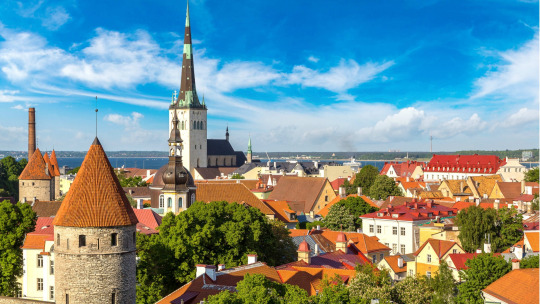
[Image description: a photograph of Tallinn, Estonia on a partially cloudy day. /End ID]
What is the language called in English and the language itself?
– The language is called Estonian in English and eesti keel ([ˈeːsti ˈkeːl]) in the language itself.
– Estonian has three main dialects: Northern, Southern, and Northeastern Coastal. Northern and Southern and the two main dialects used in media.
Where is the language spoken?
– It is spoken mostly in Estonia.
How many people speak the language?
– About 1,100,000 people speak Estonian.
Which language family does it belong to? What are some of its relative languages?
– It is classified as Uralic > Finno-Ugric > Finnic > Southern > Estonian. It’s closest relative language is Võro which is also spoken in Estonia.
What writing system does the language use?
– Estonian is written in the Latin Script.
– How to identify the language: The combination of õ and ä are a pretty good sign that you’re looking at Estonian.
– Sample text from omniglot: Kõik inimesed sünnivad vabadena ja võrdsetena oma väärikuselt ja õigustelt. Neile on antud mõistus ja südametunnistus ja nende suhtumist üksteisesse peab kandma vendluse vaim.
What kind of grammatical features does the language have?
– Estonian is an SVO language with 3 persons, 2 numbers, 3 voices (indicative, conditional, and imperative), 4 tenses (present, imperfect, perfect, pluperfect), and many cases. It has relatively free word order, and stress typically falls on the first syllable of a word. There is no grammatical gender.
What does the language sound like?

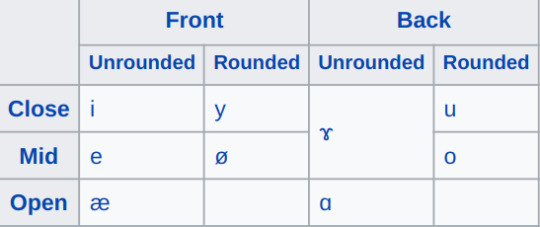
undefined
youtube
What do you personally find interesting about the language?
– I personally really like how it sounds :D I also noticed that Estonian doesn’t have a distinctive future tense, and I love when languages have that feature!
29 notes
·
View notes
Text
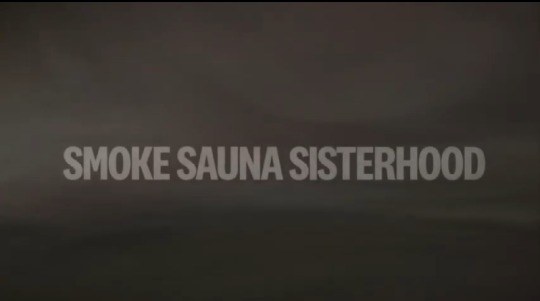

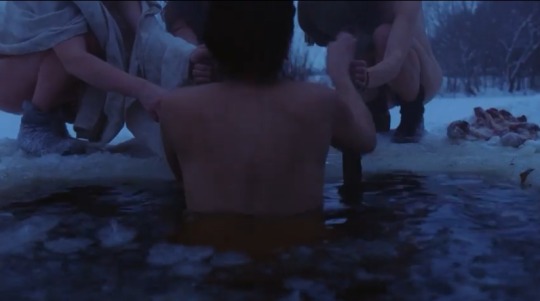
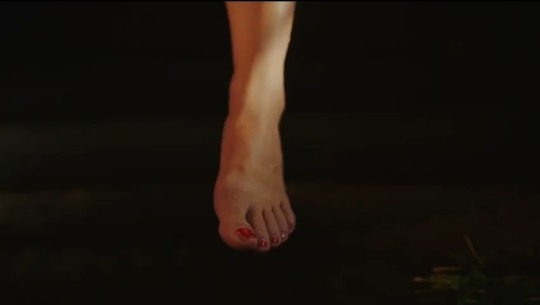
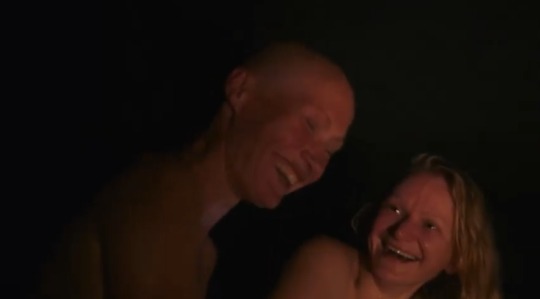

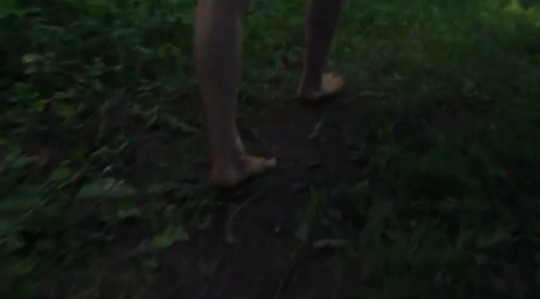



Smoke Sauna Sisterhood (2023) Directed by Anna Hints
#smoke sauna sisterhood#anna hints#female directors#documentary#estonia#eesti#Vana Võromaa#Võro#seto#eesti keel#nocticola art
27 notes
·
View notes
Text
reading abt what happaned with the scots wiki burns my soul to the ground. this all happened in 2020 but apparently for nearly a decade someone had been making tons of edits and pages for the wiki in essentially "english but with a scottish accent" and reading that scots is actually an UNESCO recognized vulnerable language and not just bastardized english makes the linguistics enthusiast inside me boil with absolute rage. People are trying to excuse their actions with "no one can act in bad faith if they've done so much for so long" and seeing the user be like "seeing people angry at my contributions is enough to make me stop, you can ban me and delete my articles ):" makes me even angrier. Youre telling me this hardass never even once thought in the decade they were there that "huh, maybe bastardizing an entire minority languages wikipedia page is shit idea" considering that they didnt even fucking speak scots.
i care about linguistics and minority languages a whole bunch, especially cuz plenty of finnish-uralic languages are literally dying in real time (livonian, votic, ingrian) and the thought of someone doing this to the võro language wikipedia makes me want to rip bitches to shreds. Which is why i'm mad this happened with the scots wikipedia.
You cant just make 200000 edits full of shit and not even once consider the consequences of your actions. Fuck you.
#ivan.docx#said person apparently long deleted most of ther social media due to harassment so like whatever to that i guess#unless they want to actually learn scots to help clean up the mess theyve made then to hell with them#people on twitter are like ''no this is actually funny lol''#didnt expect there to be understanding why doing this is harmful as fuck#unless youre interested in linguistics or are a native speaker of a small language#srry for the aggressive rant but damn
31 notes
·
View notes
Text
update on bunduki: i've been researching and i've been poking at an ewokese pronunciation scheme bc i need to have one in order to know how the words woulda acclimatized upon being loaned. tho honestly first i should figure out what words i even need to loan. cuz the core vocab is gonna be finnish words derived from proto-uralic/proto-finno-ugric. maybe some archaic/dialectal ones. pii for tooth my beloved. peni for dog my beloved. emo/emä for mom my beloved. and then some 1500s swedish loans cuz, see, förräderi is literally swedish. gonna be fun to just make the whole thing weird.
also i guess the writing system is gonna have traits from aurebesh (but an abudiga) since the followers of palawa were from the core (i guess ultimately all humans are from the core, since coruscant is supposed to be the og human homeworld? but the palawans are traceably so)
also ironic that despite very heavily basing everything on finnish i'm already putting in more effort than most canon swars creators. lol.
random but nobody putting in sh or th into palawan/bunduki words/characters' names my beloved. i mean. even if i'm gonna add ð & θ back in i still like that they didn't just do All The Englishy Things yanno? chaq-quaj and the 'ee's are the most egregious things. but i solved the 'ee's anyway (/ie̞/). i could totally use qu for ku, btw. (it was used in 1500s) i could also totally use q for a word-final glottal stop like võro—finnish has the glottal stop too, just unwritten, bc proto-finnic, the reconstructed common ancestor of finnish and võro, seems to have had certain word-final consonants that disappeared in finnish. the k has mostly disappeared in all finnic languages iirc, the -h yet shows up in the karelian language, and in western finnish dialects it has changed place. (karelian language veneh vs western finnish venhe. eastern finnish vene became the finnish standard for 'boat') i could also say that the qu&q are historical—they could very well have survived in a name. we'll seeeeee
also hella might call humans something derived from zhell just cuz. sel'i? sel'inen? (hehe like ihminen, get it?) finnish doesn't quite like consonant clusters in the beginning of words outside of stadin slangi or rather recent loans, so c (ts/θ) seems unlikely. ETA: probably actually hel'i, not 100% on the diminutive
2 notes
·
View notes
Text
Não importa sua estatura física, o que realmente importa é sua estatura e postura moral!É que no fim ou final te faz a menor particula física ou metafísica ou o maior SER entre os SEUS!
Por: Fred Borges
Dedicado ao PERDÃO ao SENHOR,ao MISERERE*, as menores e maiores partículas do mundo, aos detalhes, aos simples e pequenos detalhes, muitas vezes desprezados, ignorados,anulados, mistificados, fanatizados, difamados ou distorcidos.
Deus, nosso Senhor está na nossa palma da mão e no coração, mente, em estado físico ( Bíblia) e metafísico ( Fé ou Esperança)!
Aos pedidos de perdão em todas ou nas que encontrei as línguas:
" Ainda que eu falasse a língua dos homens
E falasse a língua dos anjos, sem amor eu nada seria"Monte castelo
Canção de Legião Urbana
Pedido de desculpas em todas as línguas.
Sei que errei, "pardonare" Senhor, e agora tudo que me resta é pedir o seu perdão.
Como prova do meu arrependimento, peço desculpas não uma vez, mas várias e em todas as línguas que encontrei.
Afrikaans: "Jammer"
Albaneses: "Unë jam i keq"
Alemão: "Es tut mir leid"
Amharic: "Aznallehu."
Árabe: "Aasef".
Arménio: "Ts'avum yem."
Avar: "Tʼasałuha"
Azeri: "Üzgünüm"
Basco: "Sentitzen dut"
Lower Saxon: "Nix för ungood"
Bengali: "Āmi duḥkhita"
Bhojpuri: "hamake maf kara".
Bielorrusso: "Mnie vieĺmi škada"
Bósnio: "Oprostita".
Bretão "Eskuzit ac'hanon"
Búlgaro: "Sŭzhalyavam"
Catalão: "Em sap greu"
Cebuano: "Ikasubo ko"
Chamorro: "Dispensa yo' ".
Chinês (Mandarim): " Duìbùqǐ "
Chinês (Xangai): "Tevéchi".
Coreano: "Mian haeyo"
Crioulo haitiano: "Mwen regrèt"
Croata: "'Ao mi je"
Dinamarquês: "Jeg er ked af det"
Espanhol: "Perdón"
Esperanto: "Mi pardonpetas"
Estónio: "Mul on kahju"
Finlandês: "Olen pahoillani"
Frisiano (Norte): "Fertrüt me"
Frisian (Oeste): "Desculpe."
Friulian: "Scuse"
Gaélico da Escócia: "Gabh mo leisgeul"
Gaélico da Irlanda: "Gabh mo leiscéal"
Galego: "Síntoo"
Galês: "Mae'n ddrwg gen i"
Georgiano: "Me ukats 'ravad'"
Grego: "Lypámai"
Gujarati: "Huṁ dilagīra chuṁ"
Hebraico: "Slicha"
Hindi: "Mujhe maph kardo"
Húngaro: "Sajnálom"
Islandeses: "Fyrirgefðu"
Ilocano: "Pakawan"
Indonésio: "Maafkan aku "
Inglês: "I'm sorry"
Inuktitut: "Iikuluk"
Italiano: "Mi dispiace".
Japonês: "Gomen'nasai"
Kannada: "Kṣamisi"
Cazaquistão: " Keşiriñiz "
Lao: "Khony khoothdnoa"
Latim: "Ignosce mihi"
Letão: "Man žēl"
Lituano: "Atsiprašau"
Luxemburguesa: "Perdão".
Macedónio: "'al mi e"
Malaio: "Ma'af"
Malayalam:"KshamikyNum"
Maltês: "Skużani"
Manx: "S'doogh lhiam"
Maori: "Arohaina mai"
Mongol: "Uuchlaarai".
Navajo: "Dooládó' dooda da".
Holandês: "Het spijt me"
Norueguês: "Beklager"
Occitano: "Perdon"
Urdou : " Māf karna "
Uzbequistão: "Afu eting"
Papiamento: "Sori".
Pashto: "Zeh mutaasif yum."
Persa: "Moteassefam."
Filipino: "Ako ng paumanhin"
Polaco: "Przepraszam"
Romanche: "I ma displacha"
Romeno: "Îmi pare rău" ou "Scuzați-mă"
Russo: "Prastite"
Samoan: "Malie lou loto"
Sardenha: " Mi dispraghidu "
Sérvio: "'ao mi je" ou "Izvinite"
Sesotho: "Ntshwarele."
Shona: "Ndineurombo."
Siciliano: " Mi scusassi "
Sinhala: "Mata samāvenna"
Em eslovaco: "Je mi a ľúto"
Esloveno: "Oprostite"
Somali: "Waan ka xumahay"
Sueco: 'Förlåt' ou 'Jag är ledsen'
Suíço-alemão: "Es duet mr leid"
Swahili: "Samahani."
Tagalog: "Paumanhin".
Tamil: "Enna maniichudunga"
Tcheco: "Je mi to líto"
Telugu: "Maa kshamaapanalu"
Tetum: " Deskulpa "
Tailandês: "Kŏr tôht"
Tibetano: "Gawn-da."
Tigrinya: " Yiqreta "
Tonga: "Fakamolemole."
Tswana: "Ke kopa tshwarelo."
Turco: "Pardon"
Ucraniano: "Vybačte"
Veneza: "Scuxéme"
Võro: "Andis".
Yiddish: "Zay moykhl."
Xhosa: " Ndicela uxolo "
Yorùbá: " Pẹlẹ "
Yucatec Maya: "Ma'taali 'teeni'"
Zazaki: "Qusır de seyr meke "
Zulu: "Uxolo
E claro, mais uma vez, minhas mais sinceras desculpas.
"Podemos ser qualquer um, desde que não sejamos nós mesmos!"
O Algoritmo de Deus e dos Nódulos Coronariano e Pulmonares.
Perdão Senhor!
Estamos a maltratar nossos irmãos, a enfiar a faca no ventre de possíveis homens bons,bons de natureza, bons para natureza, bons por cultivar e alimentar a Terra.
Perdão Senhor!
Estamos a conduzir nossos seres-instituições ou organizações como se não tivessem vida, não tivessem gente, dentro e fora, pacientes com paciência, clientes, homens, mulheres e crianças, idosos como se não houvesse para todos o amanhã.
Perdão Senhor!
Por termos estabelecido em todas as épocas da história da civilização a escravidão, a negação da vida, da liberdade, da individuação, da socialização e da própria humanização.
Perdão Senhor!
Por ter elevado a carne acima do próprio espírito, por não valorizarmos a espiritualização, a reza, a oração, a meditação, a salvação, a renúncia, a resignação, o perdão, a indulgência,deixado dominar a carnificina, a morte da alma, a morte da calma.
Perdão Senhor!
Por colocar ideologias, doutrinas, dogmas, religiões, partidos, organizações secretas acima de vós, dos nós dos embarcados e embarcações, acima dos laços dos eternizados pelo amor, pela família, pela total ou parcial falta de senso e sensibilidade.
Perdão Senhor!
Por distorcer a matemática do algoritmo de vós e não oferecer possível solução, mas problemas e mais problemas, e isto ferir, maltratar, criar nódulos, enrijecer coronária, perdermos nossa identidade, nossa origem, nossa razão de ser- Servir.
Perdão Senhor!
Por podermos ser e não sermos, perdermos nosso senso de coletividade, coletivismo, de sermos e estarmos embarcados num mesmo barco rumo ao horizonte e acharmos que a terra é plana e a cortarmos com uma plaina.
Perdão Senhor!
Por esquecermos as nossas origens, por não valorizarmos pai e mãe, por não sermos gratos aos nossos antepassados, por não valorizarmos a essência e deixarmos nos guiar pelas dúvida, pelo ceticismo, egoísmo, egocentrismo, por não sabermos diferenciar preço de apreço ou valor e fazermos do fim um fim em si mesmo e não valorizarmos o durante, o meio, os eternos segundos de qualquer convivência, vivência, vividos, viventes, vigorados vigente, colunas e vigas, vicissitudes da vida em mim, em nós, em cada,em casa, no lar, no mar, nos rios, no micro, no nano mundo,universo inverso, reverso, paralelo, tangente, intangível, atingível ou inatingível, compreensível e incompreensível, visível ou invisível dos nossos destinos e desatinos, da nossa interpretação ardilosa,maliciosa, tendenciosa, nada científica, nada racional, eminentemente emocional.
Perdão Senhor!
Por não sermos autênticos, intensos, dedicados, disciplinados e ao mesmo tempo flexíveis, enquanto o humano estiver acima das coisas, coisas materiais,e tudo acima de vós Senhor, nada valerá a pena, apenados estaremos, apenados morreremos.
Enfim perdão Senhor,
Por não fazer a VIDA VALER!
Por não estar o tempo inteiro contigo,pois se estivéssemos estaríamos protegidos, amados, abençoados, acolhidos, completos,íntegros, inteiros, não fragmentados, com nódulos, noduas, vazios, angústias, depressões,cremações infernais,ansiedades, pois se temos a vós Senhor, temos o Universo, as cores, e a fotos preto e branco,não precisariam ser preto no branco ou branco no preto de Sebastião Salgado, e não revelaria a rotina da escravidão antiga, moderna, contemporânea,ele foto revelada e atual, e no seus lugares, do preto e branco,estaria sempre no seu reino Senhor de cores, amores, fé, esperança, júbilo das almas, de almas lavadas, leves, levitando sobre a Terra numa era sem Apocalipse ou Armagedom ou Abadom**, enfim em PAZ!
*Miserere, também conhecido como Miserere mei, Deus (em latim: "Tende misericórdia de mim, Deus") é uma versão musicada a cappella do Salmo 51 (50) feita pelo compositor italiano Gregorio Allegri, durante o papado de Urbano VIII, provavelmente durante a década de 1630.
**Abadom (em hebraico: אֲבַדּוֹן, 'Ǎḇaddōn) é um termo hebraico que tem o significado de “destruição” ou "destruidor".
Na Bíblia hebraica, o termo figura seis vezes, todas elas na literatura de sabedoria em Jó 26:6, Jó 28:22, Jó 31:12, Salmo 88:11, Provérbios 15:11, Provérbios 27:20.
No Novo Testamento a palavra é aplicada apenas em Apocalipse 9:11.
Na Bíblia Hebraica, abaddon é usado como referência a um abismo sem fim, geralmente próximo a sheol (שאול).
No Novo Testamento, em Apocalipse 9, um anjo chamado Abadom é descrito como o rei do abismo sem fim de onde emerge um exército de gafanhotos (Apocalipse 9:11).

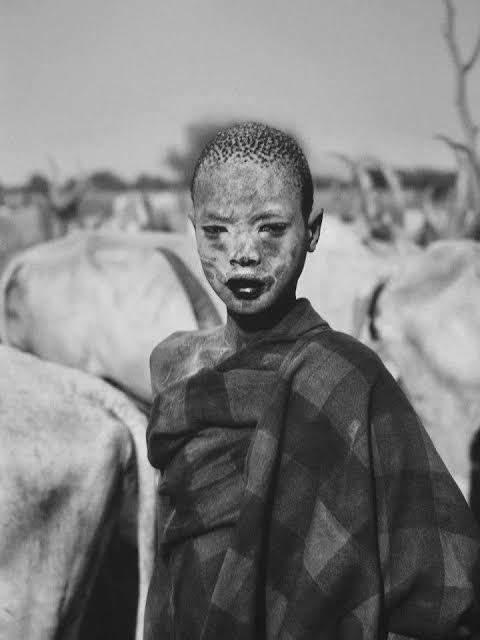
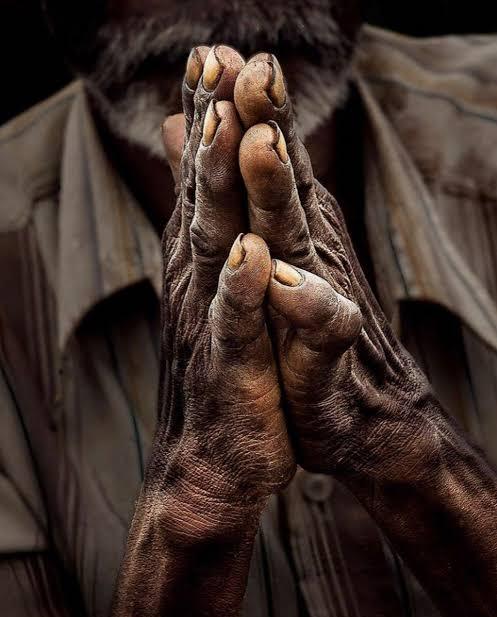
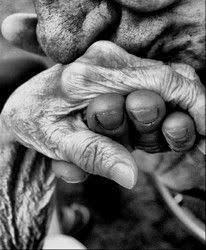
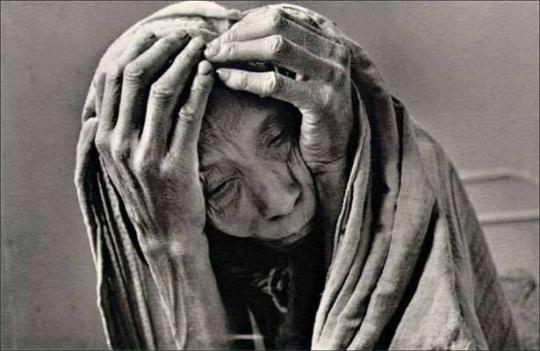



0 notes
Text
"Smoke Sauna Sisterhood" offers an insightful look into a traditional Estonian sauna ritual

"Smoke Sauna Sisterhood" is a documentary set in Estonia’s Vana-Võromaa region, showcasing a UNESCO-recognized smoke sauna tradition. The film, directed by Anna Hints, captures the intimate and transformative experiences of women who gather in a remote sauna throughout the seasons.
The narrative focuses on Kadi Kivilo and others as they engage in rituals like the long sweat, and openly discuss topics like childbirth, cancer, and personal traumas. The film emphasizes the female body in a natural, unglamorized way, with close-ups that respect the women's privacy. Estonian folk music adds to the film's exploration of tradition and transformation, culminating in a springtime scene that symbolizes renewal and communal bonding.
Full credits
Distributor: Greenwich Entertainment
Production companies: Alexandra Film, Kepler22 Productions, Ursus Parvus
Director-screenwriter: Anna Hints
Producer: Marianne Ostrat
Cinematographer: Ants Tammik
Editors: Hendrik Mägar, Tushar Prakash
Composers: Edvard Egilsson, EETER
Sound designer: Huldar Freyr Arnarson
Sound Recordist: Tanel Kadalipp
In Estonian, Seto and Võro
1 hour 32 minutes
Read the full article
0 notes